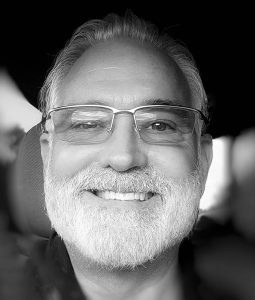Practica controlar los pensamientos, la ansiedad y la depresión
Como consejero espiritual/pastoral, veo clientes entre las edades de 9 y 99 años. Veo individuos, parejas y familias. Algunos de los desafíos de salud mental más frecuentes que veo que experimentan las personas son ansiedad, depresión, problemas de comportamiento y/o personalidad. También veo personas que están pasando por un duelo.
Solía sufrir de ansiedad extrema y depresión profunda. Una de las tecnologías que utilicé para sentirme mejor es la TCC (terapia conductual cognitiva). La TCC literalmente me salvó la vida. Aprendí que la depresión proviene principalmente de vivir en el pasado con arrepentimiento y que la ansiedad proviene de vivir en el futuro con miedo. La TCC me ayudó a comprender que mis pensamientos crean mi realidad y son antecedentes de cómo me siento y cómo me comporto.
Así que básicamente, si tengo pensamientos tristes o negativos, inevitablemente me sentiré triste y lo más probable es que termine tratando de encontrar algo que me ayude a sentirme mejor, como comer un pedazo de pastel, pero hacer eso no me ayudará mantener mi peso ideal.
La alternativa es de detenerme a mí mismo de tener este pensamiento triste y negativo y reemplazarlo con uno más positivo. Por ejemplo, puedo estar pensando que no he hecho mi lista de cosas por hacer y empezar a sentir que soy un vago y luego castigarme no saliendo con mis amigos. O, puedo hacer un inventario de todas las cosas que hice ayer y darme cuenta que tengo el fin de semana para terminar mi lista y ser amable conmigo mismo. Así, cuando mis amigos me piden que salga, puedo decir que sí y no sentirme culpable por ello.
He llegado a comprender que la percepción tiene mucho poder, pero yo tengo el poder de cambiar mi percepción. Es la diferencia entre percibir un vaso de agua medio lleno o medio vacío. El truco consiste en desafiar nuestros propios pensamientos y preguntar: “¿Este pensamiento me hace sentir bien o no? Y si no es así, todo lo que tenemos que hacer es cambiar ese pensamiento. Requiere práctica, pero una vez que le cojas el piso, se convierte en una segunda naturaleza.
Rev. Gerardo R. Cantú, MA, LMSW
Móvil, Ala.
Practice controlling thoughts, anxiety and depression
 As a Spiritual/Pastoral counselor, I see clients between the ages of 9 and 99. I see individuals, couples and families. Some of the most prevalent mental health challenges I see people experiencing are anxiety, depression, behavioral and/or personality problems. I also see people who are experiencing grief.
As a Spiritual/Pastoral counselor, I see clients between the ages of 9 and 99. I see individuals, couples and families. Some of the most prevalent mental health challenges I see people experiencing are anxiety, depression, behavioral and/or personality problems. I also see people who are experiencing grief.
I used to suffer from extreme anxiety and deep depression. One of the technologies I used to feel better is CBT (cognitive behavioral therapy). CBT literally saved my life. I’ve learned that depression comes mostly from living in the past with regret and that anxiety comes from living in the future with fear. CBT helped me understand that my thoughts create my reality and are antecedents to how I feel and how I behave.
So basically, if I’m thinking sad or negative thoughts, I will inevitably feel sad and will most likely end up trying to find something to help me feel better, like eating a piece of cake, yet doing that will not help me stay at my ideal weight.
The alternative is to catch myself thinking this sad and negative thought and replacing it with a more positive one. For example, I can be thinking that I haven’t done my to-do list and start feeling like I’m lazy and then punish myself by not going out with my friends, or I can take inventory of all the things I did yesterday, realize that I have the weekend to finish my list and be gentle with myself. And when my friends ask me to go out, I can say yes and not feel guilty about it.
I have come to understand that perception has so much power, but I have the power to change my perception. It’s the difference between perceiving a glass of water as half full or as half empty. The trick is to challenge our own thoughts and ask, “is this thought making me feel good or not? And if it isn’t, then all we have to do is change that thought. It takes practice, but once you get the hang of it, it becomes second nature.
Rev. Gerardo R. Cantu, MA, LMSW
Mobile, Ala.

















